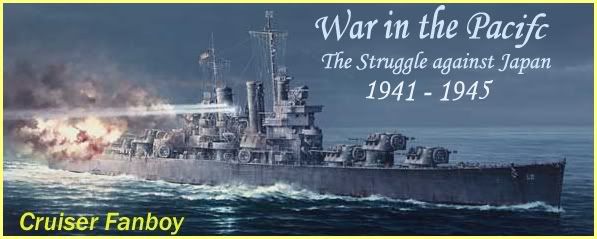CobraAus
Posts: 2322
Joined: 8/23/2004
From: Geelong Australia
Status: offline

|
nasty politics Aus 1942 and still talked about today
this was to be Aus' answer to an invasion of Aus by Japan - thank God it did not happen
there is a lot more about this subject on the net just Google
The Brisbane Line
Percy Spender was Menzies' foreign minister, but, Neale Towart asks, was he also prepared to serve as Prime Minister in a Japanese controlled Australia?
**********
The Japanese military machine and the Australian ruling class, in another episode showing how the ruling elites will defend their privileges against any threat to the social order, planned for a Vichy administration in Australia.
Drew Cottle has given us the most detailed outline to date of all that is known of "The Brisbane Line" the plan of the Australian Gentry to do a deal with the Japanese during World War II and let them have the continent north from Brisbane. Rupert Lockwood, crusading journalist won lasting notoriety because of the Petrov Royal Commission and his alleged authorship of "Document J". That document is central to Cottle's researches and provides many clues to the truth of the Vichy administration plan.
Cottle explains that his fascination for the subject was stirred by his fathers anger every Friday night when he saw Charles Cousens appeared on Channel 7 to read the news, saying "Japanese agent" and "one of the Brisbane Line traitors". He could never understand this and in the frigid atmosphere of cold war Australia, where political debate was so constrained, the topic never got an airing elsewhere.
AT the time (1942) when the Japanese were advancing rapidly south an invasion did seem a real possibility. Eddie Ward was the first to accuse Menzies and his ilk of betrayal and being prepared to do a deal. There was a Royal Commission at the time but it was never transcribed. Max Julius communist lawyer and close associate of Fred Paterson the only Communist ever elected to a parliament in Australia, produced a pamphlet, "The Truth About The Brisbane Line" in 1942. The cover cartoon is a major indictment of all Menzies actions in his political history, with a reminder to readers of Pig iron Bob, his praise for Hitler, his support of the Munich Agreement, his non-intervention in the Spanish, his resignation of his military commission in 1914 and a quote that would do John Howard proud, "The Government of which I had the honour to be the leader has no apology to make to history: (22-6-1943, Hansard)
Cottle's book is the best guide yet to the lie in that statement.
The passions of the time are set out by Fred Paterson in his introduction to max Julius' pamphlet.
"No question has aroused such bitter feelings as the Brisbane Line Plan. The people of Queensland have every right to feel bitter. For the Brisbaner Line Plan involved giving up the greater part of Queensland, the Northern territory and North West Australia to the Japnese invaders without serius resistance.
To illustrate the outlook of the Tory defence experts I cannot do better than to quote the words of General Squires (Chief of the General Staff at the time), who, at an inquiry on defence matters, said-
"I am informed that there are only a few unimportant villages north of Brisbane".
Paterson went on the lay the blame on the United Australia party (Lyons and Menzies) and the Country Party for the defeatist program.
His final sentence unfortunately was proved wrong as Menzies and co quickly regained office after the war and the cold war kept them there for 23 years. Howard's regime is a resumption of the duplicity of this class of people and we should take to heart Paterson's summing up:
"No Australian could tolerate for one moment that our country's future should be entrusted to those who were responsible for this shocking strategy."
Cottle's main interest is not the military strategy of the Brisbane Line, although he does consider Macarthur's reaction to it and how he (Macarthur) saw it is a way on ensuring his heroic status as military saviour
Julius says in his pamphlet that the Brisbane Line Plan first existed in documentary form from 1942 when it was presented to, and rejected by, the Curtin government. The idea of the Brisbane Line, as a military strategy seems to go back to Lord Kitchener's visit to Australia in 1909-10 and his military plan occasioned by the fear of Japanese attack at that time. The British were concerned at the Japanese rivalry then.
Cottle is a Marxist historian so his concern is in the class origins of the Brisbane Line idea. The notion has been easily dismissed by the ruling class since the defeat of the Japanese as it was no longer an issue, but the willingness of the ruling elites to come to an arrangement should not be overlooked. Cottle points out that sections of society in France and Norway fro example, quickly and enthusiastically collaborated with the Nazis. The Philippine elite did the same with the Japanese.
Being of a different generation to Cottle, my first knowledge of the Brisbane Line stem from a review by Humphrey McQueen of Xavier Herbert's Poor Fellow My Country. McQueen notes Herbert's acceptance of the government plan to withdraw south of Brisbane for military purposes but Herbert does not take the extra step of seeing more sinister political forces behind this idea. As McQueen put is "the local bourgeoisie, which had been so stuck on the British, found little trouble shifting to the yanks. Doubtless they would have come to an arrangement with the Japanese in 1942, if the need had arisen." McQueen did not delve any further into the story. With the release of the Petrov case document sin the mid 1980s and discussions with the previously largely unheard of Ken Cook an "unofficial" intelligence operative, Drew Cottle founds his book on the hypothesis McQueen sketches out.
Cottle begins with an account of why appeasement was so appealing to the ruling classes in the wake of the slaughter of World War I. The rise of a newly educated and active working class, and the Bolshevik revolution led to a sense of unease amongst some and the results were the formation of the Old Guard and the New Guard, and various other manifestations of fascism that were thought necessary to safeguard the social order. Andrew Moore has perhaps looked into these movements more than most, and Jack Lang, himself violently opposed to communism, was the target of their concern, particularly after his Transport Administration legislation, when many garage owners around Sydney flocked to the New Guard. John Howard's father was a garage owner in the main stronghold of the New Guard, but no record exists of his membership.
These movements, and the Australia First movement (most notable for its inclusion of P.R. Stephensen and bankrolled by J Miles, a businessmen and both of whom were associated with Xavier Herbert, and whom he depicts telling in Poor Fellow My Country), were of interest to the Japanese, who throughout the thirties were keen to forge links with Australian business. The Japanese were large buyers of Australian wool, iron ore and other raw materials. So the Japanese were already important to the Australian economy. Also Japanese intelligence officials were active in Australia from 1931 to 1941, and were crucial in developing plans for the invasion, which were eventually abandoned in 1942-43. The Japan-Australia Society was formed in 1929 and officially disbanded in March 1941. The records left to us are scanty. Also the consulate before its closure destroyed many documents compiled by Japanese foreign and intelligence officials in Sydney in 1941.
Cottle goes on to look at the class membership of the society and the Australia First movement. He also devotes a chapter to the "white Japanese" those military and political figures who were sympathetic to the Japanese, and "whose importance to the potential Japanese invasion and occupation of Australia may never be known but for which there is tantalising evidence." Percy Spender, later foreign minister under Menzies is a key figure here.
Other writers have mentioned Ken Sato on the Japanese in Australia as the key source of evidence for the plans of the Japanese to invade. Many have thought that there were no such plans. Sato claimed that the Japanese had plans to move a large land attack between Townsville and Brisbane with Brisbane being the first objective, with Sydney to follow. The fall of Sydney and a move sought would lead to surrender. Sato named many Australians whom he knew (according to journalist Denis Warner) to be sympathetic to the plan and who would help make up a "Vichy" type administration.
Ken Cook, the unofficial intelligence operative is the real find of Cottle, and the person who seems to have been targeted by ASIO in the late 1960s up until the 1980s after he decided to write down what he had been doing in the 1930s and 1940s. He suffered a fire that destroyed his records and later a hit and run accident that almost killed him.
Rupert Lockwood and Document J, released in 1984 with the Petrov Archive, were vilified by the Royal Commission, and the Sydney Morning Herald, always reliable for the ruling class when the chips are down, backed up the Royal Commission with its editorial at the time of declassification. Cottle does a careful reading of Lockwood's What Is Document J and shows that much of what he wrote (of course unsupported by documents because they are hardly likely to be the kind of things those written about want recorded) is a reasonable account of what was going on up to 1942. He finds this from his talks with Ken Cook and his look at the connections and activities of such figures as Percy Spender, pretender to Menzies leadership but an outsider to the Melbourne Club. The reaction of his son, John Spender, former federal MP himself to the release of the Petrov Archive showed the sensitivity that still runs through the ruling classes on this cloudy part of out history.
We need to thank Cottle for remembering his father's anger and Humphrey McQueen for triggering Cottle's desire to find out what lay behind the Brisbane Line. As Cottle puts it, his "examination of the clues and starting points offered by Document J and other archival sources has suggested the Brisbane Line as a Vichy illusion of the Japan-minded n Australia. The treachery was never truly lost."
Drew Cottle. The Brisbane Line: A Reappraisal. Leicestershire; Upfront Books 2002.
Labor Council got a copy through amazon.co.uk as the book is printed on demand. The service is pretty fast. It shows the state of Australian publishing that Cottle could not get this work published in Australia.
Max Julius. The Truth About the Brisbane Line. Issued by the Qld State Committee. Communist Party of Australia, July 1943.
Humphrey McQueen. Poor Fellow My Country [review]. first published in Arena, no. 40, 1976. Republished in his Gallipoli to Petrov: arguments with Australian History
also follow this link - interesting reading
Cobra Aus
|
 Printable Version
Printable Version










 )
) 












 New Messages
New Messages No New Messages
No New Messages Hot Topic w/ New Messages
Hot Topic w/ New Messages Hot Topic w/o New Messages
Hot Topic w/o New Messages Locked w/ New Messages
Locked w/ New Messages Locked w/o New Messages
Locked w/o New Messages Post New Thread
Post New Thread